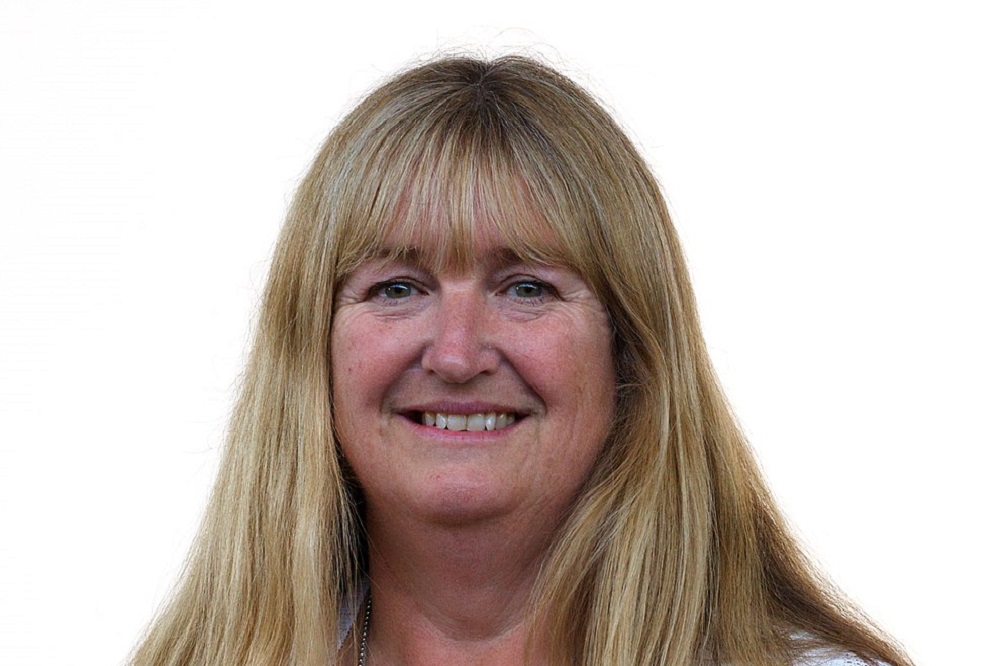Senedd roundup. New figures show Covid deaths down for second week running

Owen Donovan, Senedd Home
Latest figures from the Office for National statistics have confirmed 207 deaths involving COVID-19 in Wales for the week ending 4 December.
Both Aneurin Bevan and Swansea Bay health boards saw the highest numbers of weekly deaths since the end of April, but overall Covid deaths fell for the second successive week in Wales, down from 218 the previous week.
There were 54 deaths involving Covid in the Swansea Bay area, including 39 in hospital and 15 in care homes for the latest week covered by the ONS study.
Aneurin Bevan health board recorded 53 deaths involving COVID-19 – including 38 in hospital and 13 in care homes.
Excess deaths, which compare deaths from all causes with the average over the previous five years, were 157 more than the average in the week and 23.1% higher than average, down slightly from the previous week (23.4%).
According to the ONS, the total number of deaths in Wales involving COVID-19 from the start of the pandemic, including those registered by 12 December is 3,983.
Deaths counted by the ONS are when COVID-19 is mentioned by doctors on the death certificate and which occur in all settings – including hospitals, care homes, hospices and people’s homes.
The daily figures released by Public Health Wales only include the deaths of a hospital patients or care home resident where COVID-19 has been confirmed with a positive laboratory test and the clinician suspects this was a causative factor in the death.
According to PHW’s latest figures there have been 2,891 deaths due to the virus since March.
A further nine people have died with coronavirus and another 615 new cases have been confirmed in the latest figures released by Public Health Wales.
All nine newly reported deaths were in the Aneurin Bevan health board area.
Rhondda Cynon Taf (81) recorded most new cases since yesterday, followed by Neath Port Talbot (58) and Bridgend (56)
Merthyr Tydfil has the highest infection rate in the country, down from 870.3 yesterday to 822.2 cases per 100,000 people over the last seven days and the highest weekly positive test proportion at 30.5% per 00,000 tests.

No decision on whether to abandon Covid restrictions for Christmas
First Minister’s Questions
Noting that Wales currently has the highest COVID-19 infection rate of the UK nations, Leader of the Opposition, Paul Davies MS (Con, Preseli Pembs.), raised speculation over further measures. Given that most of Wales exceeds the threshold for Level 4 of the new restrictions system, when would a decision be made on new restrictions?
Additionally, given that two health boards have now suspended non-urgent treatment and fresh warnings over critical care capacity, what was the First Minister’s reaction to an offer from the Welsh Secretary to treat non-Covid patients in English hospitals?
The First Minister told members that the situation was being monitored daily with the issue of Christmas easing of restrictions is due to be discussed with representatives across the UK later this afternoon. Each of the UK’s nations has spent time at the top of the table for new infections at some point, so it was an evolving situation.
On the issue of hospital capacity, the problem wasn’t physical capacity (i.e. the number of free beds) – which was stretched, but not near breaking point. The problem is the high proportion of self-isolating staff. The First Minister fully endorsed the principle of mutual aid in the UK. Help goes both ways – such as Wales supplying 11 million pieces of PPE to the English NHS.
With a Senedd debate on free school meals coming up later this week, Adam Price MS (Plaid, Carms. E. & Dinefwr) slammed the Conservatives for being ideologically opposed to providing help for people at the bottom of the social latter.
The record in Wales, while a bit better, was still substandard. 180,000 children live in poverty and 70,000 children living below the poverty line are currently ineligible for free school meals. Scotland has committed to providing free school meals to all primary school pupils, while in Finland, free school meals are provided to all children – a policy Plaid Cymru would seek to emulate.
The First Minister defended his government’s record on free school meals, believing it would stand up to any and all scrutiny. Wales was the first part of the UK to guarantee them (until Spring 2021) and Wales also provides the highest allowance in the UK, with additional funding for Year 7s set to be rolled out next year.
Taking inspiration from a Fabian Society pamphlet, he went on to say that free schools meals were about more than food. They were a society’s investment in children’s future and a sign that children from all backgrounds were valued.
That said, there was always more the First Minister would like to do – but he wanted to know where the money would come for Plaid Cymru’s commitment given that the Welsh Government will have to draw from reserves next year? The detail of a policy needs to be considered – and he would consider it further if Plaid Cymru provides it – not just the headline.

First Minister plays down tax hike speculation
Mark Drakeford has played down the prospects of tax increases during the next Senedd term if Welsh Labour wins May’s election.
Speaking on ITV Wales’ Sharp End programme, the First Minister said he would focus on jobs rather than increasing taxes in the early period after the 2021 election but added that beyond that period “everybody is entitled to make their decisions based on the facts at the time”.
“I don’t think increasing taxes in a recession is good economic policy and my anticipation would be that the Labour party will not be proposing that here in Wales,” he said.
“In a buoyant economy there are a different set of arguments but at a time when there isn’t money in people’s pockets, taking money out of those pockets does not make good economic sense.
“We will go in to the [2021 Senedd] election at a very difficult time for the economy and the focus of the Labour manifesto will be on jobs here in Wales.
“Securing jobs that people already have and bringing new jobs for people who would have lost them during the recession. That will be our focus.”
“Tax rises, I do not think will be part of our prescription in that period. Beyond that, I think everybody is entitled to make their decisions based on the facts at the time.”

Committee says “difficult conversations” are needed over flood prevention priorities
Environment Committee
Flooding in Wales (pdf)
Published: 9th December 2020
- Speed of Welsh Government response to flooding praised, but councils said to be left out of pocket by clean-up costs.
- The scale of future flood challenges is said to be under-estimated.
- Natural Resources Wales calls on councils to be brave enough to turn down planning applications in flood-prone areas.
While the Committee is generally positive about the Welsh Government’s quick response to the major flooding events earlier in 2020, there were noticeable shortfalls.
Many councils were left out of pocket despite Welsh Government emergency grants, while claims “required significant work” and the requirement to spend emergency grant funding within the financial year presented difficulties as flooding continued on-off throughout the period.
The Committee recommended “end of year constraints” are removed in future.
While at the time of publication the UK Government hadn’t made available funding to meet capital repair costs which the UK Prime Minister has promised at the time, since the report was published the UK Government has made £31 million available.
The current levels of investment in flood prevention – totalling around £390million a year – was said to be inadequate given the scale of future challenges.
There were also problems in how flood management funding was distributed; Rhondda Cynon Taf Council receives under 5% of the funding despite having 21% of surface water flood-risk areas in Wales (presumably due to topography). The Committee agreed that relative flood risk should guide future local spending.
One bit of good news is that while revenue/annual management funding has the above problems, the amount of capital funding for new flood defence schemes was said to be adequate, if not good. Since the floods, the Welsh Government is 100% financing council designs and plans for new defence schemes.
The Committee also welcomed Natural Resource Wales’ (NRW) candour in their annual flood report, which underlined the scale of the challenges ahead. NRW say they’ll need an additional 60-70 staff to maintain services at the required level. The Committee has long-standing concerns over funding for NRW to carry out its functions.
New Technical Advice Note (TAN) guidance on developments in flood-prone areas is due to be published in 2021. NRW told the Committee that local authorities will need to be “brave” enough to refuse to grant planning permission based on their advice.

Developer launches high court appeal after plans for homes on greenfield site are blocked.
Emily Gill, local democracy reporter
An appeal to the high court has been lodged on plans for 300 homes at a greenfield site in Caerphilly.
Plans for 300 homes on land opposite Grove Park, near Cefn Fforest, were refused by the county borough council, leading the developer Persimmon, to lodge an appeal to the Welsh Government.
However, earlier this year, that appeal was dismissed by the minister for housing and local government, Julie James MS.
Now the developer has submitted an application to the high court asking for a statutory review to take place and for the minister’s decision to be overturned.
The application also asks for the Welsh Government to cover the developer’s appeal costs.
The appeal details document, seen by the Local Democracy Reporting Service, says the developer’s claim is centred around the proposed alternative development site.
Julie James MS said in her appeal decision notice that the Grove Park site conflicted with the council’s local development plan, which determines where houses should be built within the county borough.
Not only was the site outside the boundary of acceptable development, but it is also a greenfield site, which is considered less favourable than a brownfield site. Ms James pointed out that the local development plan contained several suitable brownfield sites for development.
One of these sites is the Aberbargoed site, which was singled out by the minister.
However, the planning inspector’s recommendation to the minister not only recommended she overturned the decision but said that the site was undeliverable.
Now, in the high court appeal application, the developer is saying that the minister failed to “consider the inspector’s conclusion that the Aberbargoed site was undeliverable” and failed to “provide adequate reasons to explain how the site could be developed”.
The appeal application goes on to discuss the shortfall in affordable housing in the county borough.
It says the “evidence before the minister was that the council has presided over a chronic, large shortfall in its housing land supply for at least nine years”.
“It (the council) accepted that it was on track to deliver only some 50 per cent of the new housing and affordable housing that its own development plan said it was needed in the borough between 2006 and 2021”.
Cllr Kevin Etheridge, of the Blackwood ward, said: “This is going to be a major one because of the potential implications.
“The public are devastated. It’s going to be dragged on another six to 12 months because they are pursuing a judicial review.
“I will be attending the high court to support my residents.”
Another Blackwood ward member, Cllr Nigel Dix, said: “I am disappointed that Persimmon felt the need to drag this out.
“At the end of the day this is all about planning being in the control of Welsh Government and local government.
“We back the Welsh Government minister in her decision, and I will continue to support the residents on this.”

Support our Nation today
For the price of a cup of coffee a month you can help us create an independent, not-for-profit, national news service for the people of Wales, by the people of Wales.




